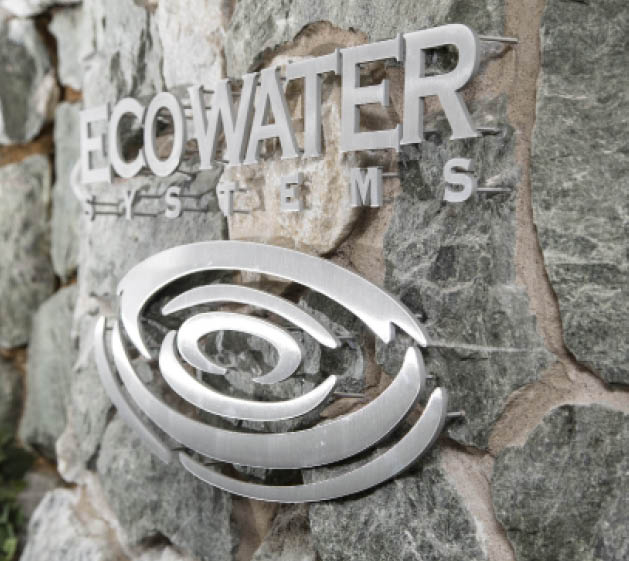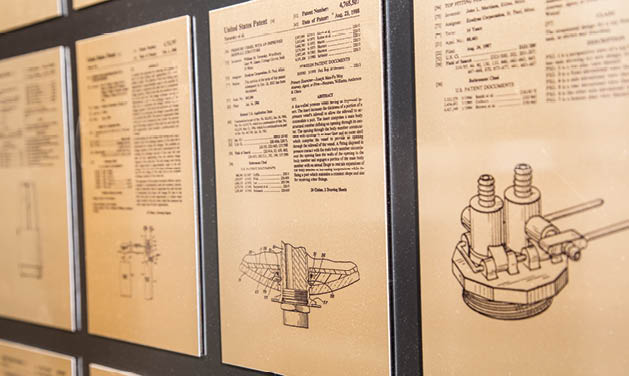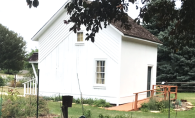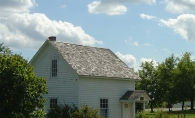Don’t be ashamed if you aren’t familiar with the EcoWater Systems building in Woodbury. It’s only been there for almost 50 years.
The company isn’t flashy, but many Woodbury residents drive by its corporate headquarters, located on Woodlane Drive near Woodbury High School, every day. Its anonymity should come as no surprise as EcoWater’s speciality is water treatment. Not exactly the most exciting industry. Or one that average folks think about very often.
However, EcoWater is an important part of the Woodbury community, and if your drinking water is clean or your hard water has gone soft, odds are pretty good EcoWater had a role in making that happen.
The company launched in 1925 as the Lindsay Company, named for its founder Lynn Lindsay. At the time, its only business was water softening. Technology was primitive, water softeners were tanks that had to be switched out when the zeolite—the material used to soften the water— was expended. It was a rather cumbersome process.
In the mid-1950s, Lindsay invented an innovative auto-regenerating water softener, which meant tanks no longer needed to be replaced. By using salt, the zeolite would regenerate, which created the system we still use today for softening water. By 1988, the Lindsay Company had been bought out and was operating under three company names. Those three companies merged into EcoWater Systems.
Today, EcoWater is one of the world’s largest manufacturers for home water treatment systems. “EcoWater Professional Products are whole home products and commercial products that soften, filter and purify water,” says Chris Wilker, EcoWater’s president of professional products.
So what exactly does that mean? Odds are good that you are familiar with the idea of purifying or softening water, but you may not know exactly what either means. It’s not as simple as buying a pitcher at the store or hooking a contraption up to your faucet. People just know they want the best possible drinking water.
“When I was going to high school and college, nobody drank bottled water,” Wilker says. “You now have a group of consumers who are concerned enough about the quality and taste of their water to consume bottled water.”
Most municipalities have standards for treating water. Water treatment plants are meant to remove contaminants, but they aren’t always 100 percent effective. Wilker also says that municipalities add chlorine to drinking water, and more than half add a mixture of chlorine and ammonia. The intent is to kill germs and make the water safer, but many consumers aren’t interested in ingesting chlorine or are put off by the smell or taste.
Water filtration systems, such as a reverse osmosis system that can be installed under most sinks, can help remove contaminants in ways that pitchers or faucet filters can’t.
Water treatment is particularly beneficial for people who live outside the city, and aren’t connected to a municipal water supply. Most of those folks have wells, which aren’t regulated by the Environmental Protection Agency like city water.
While purifying drinking water is an issue for homeowners with wells, their biggest concern is often hard water. “Most of the communities and private wells in Minnesota have hard water, which means you have naturally occurring chalk in the ground and that ends up in the water supply as dissolved hardens,” Wilker says.
The common problem isn’t dangerous, but it can cause issues. Hard water can lead to spotting, which shows up on everything from dishes to clothes, and generally doesn’t clean as well as soft water. “In addition to things that are unsavory like spotting, hard water reduces the life of appliances like dishwashers and water heaters, and the life of clothes and towels,” says Steve Dodge, who is the president of residential water softening for Marmon Water Inc., EcoWater’s parent company. “Hard water builds in the pipes in your home. They eventually become restricted and can burst.”
The solution is installing a water softener. EcoWater has a team of professionals who can install the equipment, but water softeners can also be bought at hardware stores. Wilker suggests that anyone who is a medium DIYer can install the products themselves, but you could also buy a system and have it installed by a plumber.
With all the potential problems in home water, the key is finding the right solution. Whether that’s water purification, water softening or another system, the most important step is having your water tested to find out what is needed in your home. “There is no one-size-fits-all solution and that’s why water testing and local water experts can design a customized solution,” Dodge says. Doing so doesn’t mean designing and installing a complicated system in your home. It could take one or two products, depending on your needs, and advances in technology have made water treatment an easier and cheaper solution than in the past.
It’s a constantly changing industry as experts continue to learn more about water and the different ways it can affect you and your home. And Woodbury is lucky to have its own water experts at EcoWater Systems coming up with solutions.











